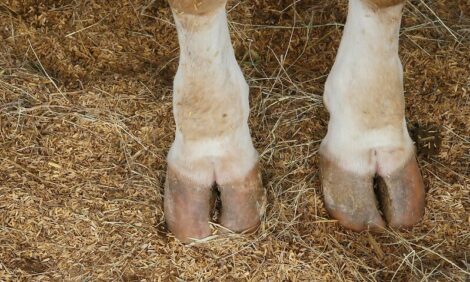



FDA declares dairy products safe after bird flu testing
Pasteurisation inactivates the virusPreliminary results of tests on additional dairy products show that pasteurisation inactivates the bird flu virus, Reuters reported, citing the US Food and Drug Administration on Wednesday.
The FDA released further test results on foods including sour cream and cottage cheese, after reporting last week that preliminary results from testing showed pasteurization kills the H5N1 virus in milk and baby formula.
The U.S. Department of Agriculture (USDA) has confirmed bird flu in 36 dairy herds in nine states since the first-ever detection in late March, though scientists have said the outbreak is likely more widespread based on findings of H5N1 particles in about 20% of milk samples. One Texas dairy worker tested positive for the virus.
The USDA believes the virus is spreading among cattle primarily through contact with raw milk, Rosemary Sifford, the agency's chief veterinary officer, said on a call that also included officials from the FDA and U.S. Centers for Disease Control and Prevention (CDC). Cows shed the virus at high concentrations in milk, the USDA said.
The FDA so far has tested 297 total retail samples of pasteurized dairy products, and the results released on Wednesday represent tests on 201 of those samples.
"It is a pretty good body of results," Donald Prater, acting director of the FDA's Center for Food Safety and Applied Nutrition, said on the call. "There are probably a few more products that we would look at just so that we make sure that we've got a good national sample."
Scientists are on alert for changes in H5N1 that could signal the virus is adapting to spread easily among humans. The virus has caused serious or fatal infections among people in close contact with wild birds or poultry. It has long been on the list of viruses with pandemic potential, and any expansion to a new mammal species is concerning.
CDC official Dr. Demetre Daskalakis said the agency has monitored about 100 people who have been exposed to bird flu, and around 25 people who developed symptoms have been tested. So far, no additional positive cases have been found.
The agency tested a sample of the virus taken from the farm worker who was infected with H5N1 and found that all commercially available antiviral flu treatments are effective against it. The worker's only symptom was conjunctivitis, commonly known as pink eye.
Currently approved antiviral drugs include Roche's ROG.S Xofluza and Tamiflu as well as a generic version of Tamiflu, GSK's GSK.L Relenza and BioCryst Pharmaceuticals' BCRX.O Rapivab.
The CDC said it is working to grow virus from the infected farm worker for additional lab experiments to assess the severity of the illness and transmissibility of the virus.
It said disease monitoring shows no unusual flu activity in people.
The USDA is testing retail samples of ground beef but said results are not yet available. The department has said it is confident the meat supply is safe.
Wild birds that carry the virus appear to be the initial source of infections in dairy cows, according to USDA. Movement of cattle then spread the disease to other herds and subsequently into poultry flocks, the agency said.



